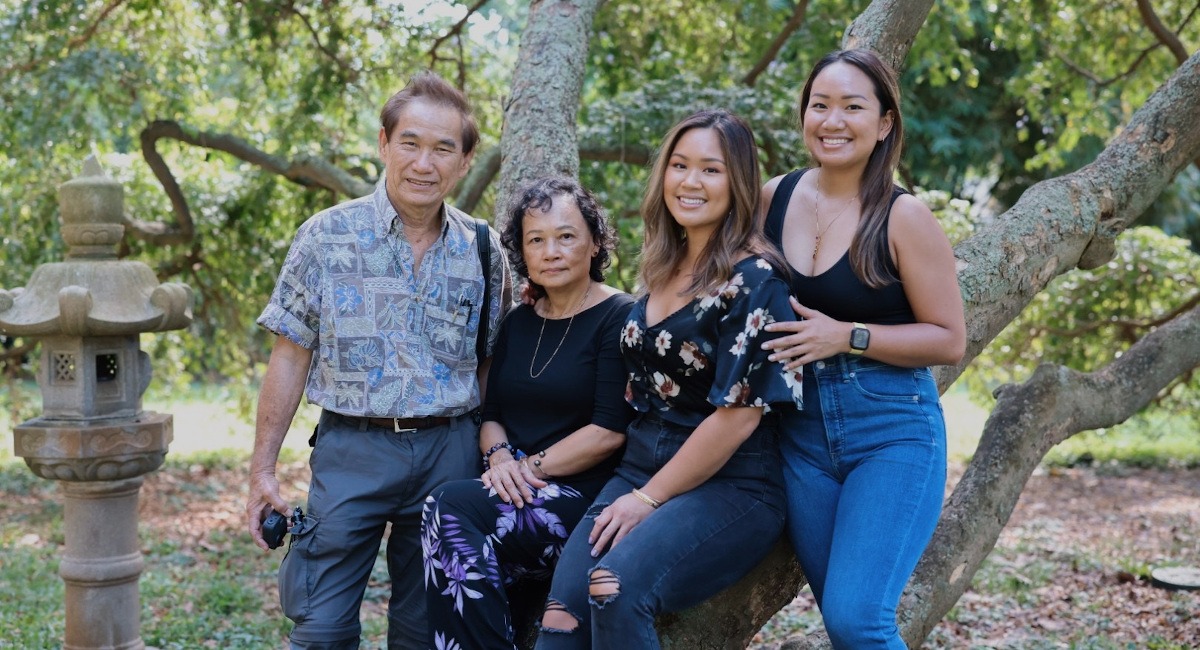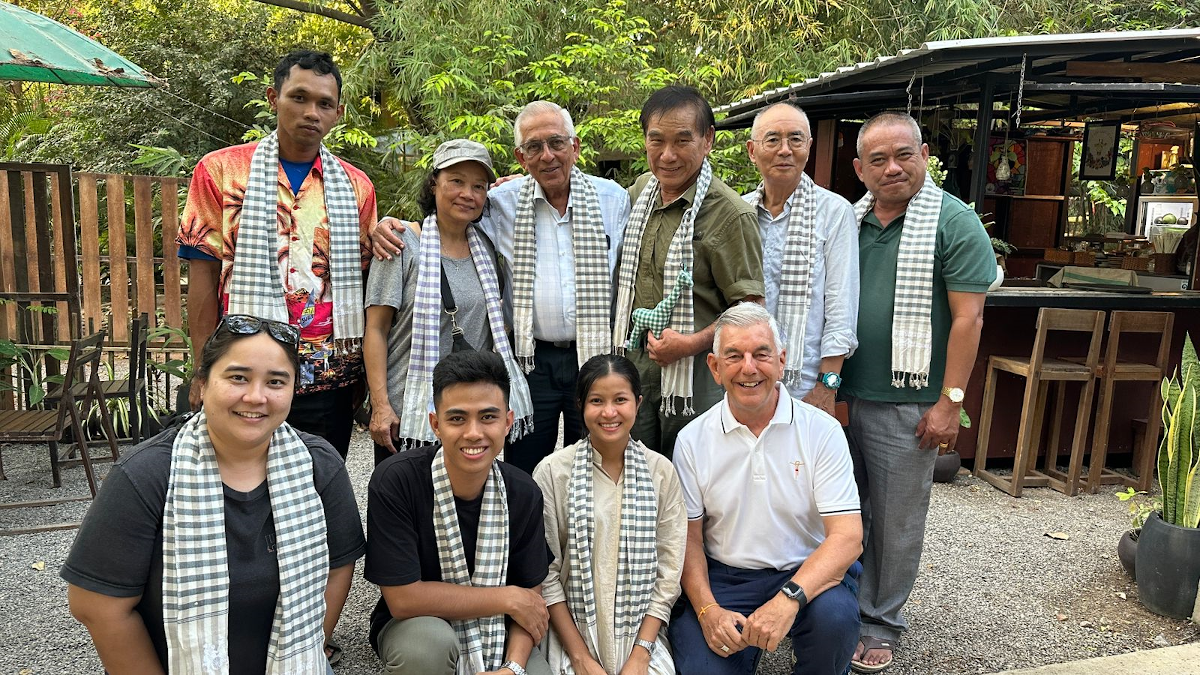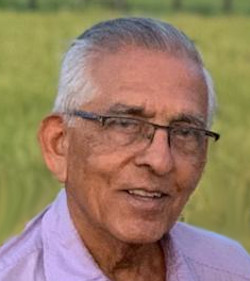
Hongly Khuy with his family | Photo courtesy of Noel Oliver SJ
About two years ago, during my tenure at Xavier Jesuit School in Sisophon, I recorded a video recounting my “cannonball experience” in 1980 when I volunteered at a refugee camp in Thailand. Alongside 12 other volunteers from India, including four Jesuits and nine laypeople, I was assigned by CARITAS to assist the Catholic Office for Emergency Relief and Refugees (COERR) in Phanat Nikom.
Among the Jesuit volunteers were Fr Pierre Ceyrac from the Madurai Province, Fr John Bingham from the Jamshedpur Province, Br Paul Macwan from the Gujarat Province, and myself from the Pune Province. Br Paul and I had been given six months’ leave by our provinces, while Fathers Pierre and John were allowed a long-term assignment. My specific task was to establish a skills training centre for the youth. I used to tell the young people there that it was important for them to have some skills so that, when they eventually got to the country that accepted them, they could search for work rather than ask people for what they needed.
Months after the video was uploaded on YouTube, I received a touching comment: “Br Noel Oliver, you might not remember me, but I remember you as if it were yesterday….” The comment came from Hongly Khuy, a Cambodian refugee who had been one of the students at the skills training centre. He shared fond memories of the camp, particularly the Christmas programme at the Technical Institute in Panat Nikom.
“Many of us had a wonderful time learning and rejoicing in the worst conditions of our lives as refugees then. Very good memories of it all! You gave us back a sense of life, a sense of hope…. The love and care you had for the less fortunate like me at that time remains in my memory forever,” he wrote.
Refugees in the Phanat Nikom Refugee Camp were usually there for a short time as the process of their acceptance by the USA, France, Australia, or some other countries was ongoing. Hongly, is now a US citizen residing in Hawaii and working at the University of Hawaii Mānoa as network administrator, a fact that I learned after our reconnection.

Br Noel Oliver SJ (standing third from left) flanked by Hongly and his wife, Sovechana, during their visit to Cambodia
Hongly shared about the KHEMARA Centre, an organisation he is connected with, dedicated to promoting, sharing, and transmitting Cambodian history and civilization to Cambodians of all ages, to diasporas who share similar experiences, and to communities from all parts of the world. Hongly had written an article in 1982 for the magazine KAPIO about the hardship they endured during the Khmer Rouge. He dedicated his article to his father, Bun Seanc Khuy. What he wrote deeply touched me. Here is an extract:
“At age 55 in 1975, my father was as strong as an athlete. He unbelievably became a skeleton dressed in his favourite shirt, which used to be white and well ironed but now turned dirty yellow. His white short pants were tied tight to his waist by a string. Without a stick or a bamboo cane to support himself, he didn’t have the strength to walk. He hung a tin bowl on his forearm, concentrating all his strength to wade in the mud, almost knee deep, to get his portion of food for the day, which was a bowlful of water and a few grains of rice. He looked very, very weak and would collapse if pushed by a finger. My dear father stopped every few minutes to preserve whatever energy he had, while the communist cadres waded past him like bull-fighters”.
After describing what his father and they had to go through, he continued: “I wanted to stay and somehow help my father, but on the other hand, I would be accused of treason, a capital punishment, if I could not reach my brigade before dark. My dear father knew my problem and then told me to go back: ‘I would like at least you to be able to live; as for me, I do not have much longer to live. Nevertheless, let me die. And if safe enough, flee this country for your future… dear son.’ He stopped while his tears ran down from his pale eyes deep in their sockets. Prostrating myself at his feet, I sobbed hysterically while he laid his hands upon my head, praying to God for blessings. He added, ‘Go, my dear son.’”
The reunion with Hongly became more poignant as he planned a visit to Cambodia in mid-December and expressed a desire to meet me and Bishop Kike. What a joy it was when it happened! It had been 43 years since our initial meeting at the refugee camp in Thailand.
Notably, Hongly’s wife, Sovechana, who was also a refugee, vividly remembers Br Paul Macwan. She used to help him as an interpreter since he was involved in construction work for the UNHCR through COERR. The connection that was forged during that challenging time has persisted through the years.
Hongly’s journey from a Cambodian refugee in the 1980s to a flourishing life in Hawaii underscores the lasting effects of compassion and support. His story and many others like it remind us that seemingly small acts can ripple through time, shaping lives and fostering hope for a better future.







